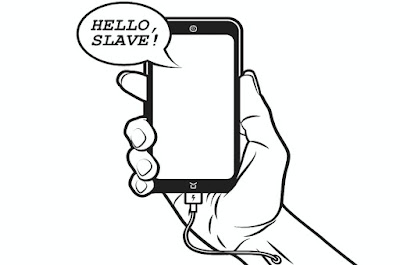resisting the Internet’s grip
"22 of the Cutest Infant Pets," the heading stated. "You will not think number 11!"
In spite of an approaching due date - in addition to my suspicion (exactly just how adorable might they potentially be?) - I clicked on the tale. I'm just human, besides. Yet this failing in self-regulation set you back me at the very least fifty percent a hr of great time - as have various other clickbait headings, bizarre pictures on my Twitter feed or disagreements on Twitter and google.
The perilous, disruptive draw of the Web has ended up being relatively inescapable. Calls us from our pockets, lurking behind function files, it is simply a click away. Research researches have revealed that every day we invest, typically, 5 and a fifty percent hrs on electronic media, and eye our phones 221 times.
On the other hand, the designers of sites and telephone applications all make use of human behavior propensities, developing their items and websites in manner ins which draw in our look - and keep it. Composing for Aeon, Michael Schulson factors out:
Designers have laid their futures on techniques to grow practices in individuals, in purchase to win as a lot of that interest as feasible.
Provided the Internet's omnipresence and its different features, is it also feasible to rein in our expanding Web usage, which frequently comes with the cost of function, household or connections?
Mental research study on persuasion and self-discipline recommends some feasible techniques.
It is essential to recognize a few of the techniques that Web authors and internet designers utilize to get our interest.
The unusual number 22 in the heading is an instance of the "stimulate" method. Notes are typically rounded numbers (think about Letterman's Leading 10 notes or the Ton of money 500). Uncommon numbers attract our interest since they damage this pattern. In a traditional examine, the social psychologist Anthony Pratkanis and associates discovered that passersby were practically 60 percent much a lot extra most likely to provide cash to panhandlers requesting US$0.37 compared with those that were requesting a quarter.
Individuals in the examine likewise asked much a lot extra concerns of the panhandlers that asked for unusual quantities, compared with those that pled for a quarter. The exact very same point occurred when I saw the heading. In this situation, the suspicion that triggered me to ask the concern "Exactly just how adorable might they potentially be?" backfired: it made me much a lot extra most likely to click the web link. Tips Terbaik Menang Bermain Judi Bola Online
An interest stimulate (such as requesting $0.37 or calls out picture #11) sets off us to stop whatever we're doing and reorient to the challenge. Concerns need responses. This propensity is called by psycho therapists as the rhetorical concern impact, or the propensity for rhetorical concerns to trigger us to dig much further right into a problem.
These techniques make use of integrated functions of our minds that or else offer us well. It is plainly beneficial that unforeseen stimuli catch our interest and involve us in a look for description: it may quit us from obtaining strike by a vehicle, or sharp us to unexpected and questionable modifications to the stabilize in our checking account.
So it would not make good sense to shut off that type of vigilance system or instruct ourselves to disregard it when it seems an alarm system.



